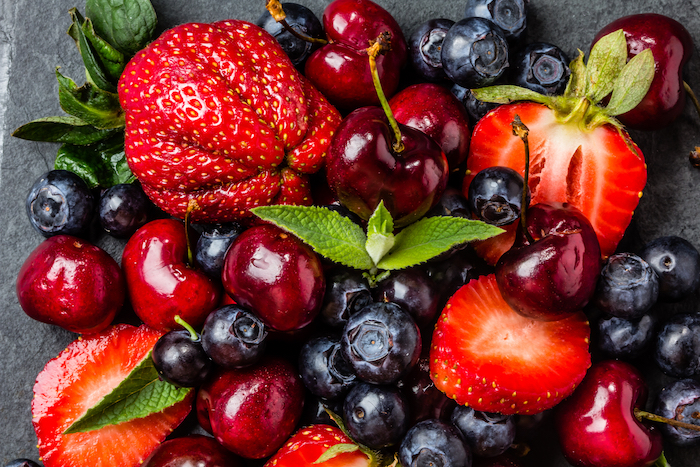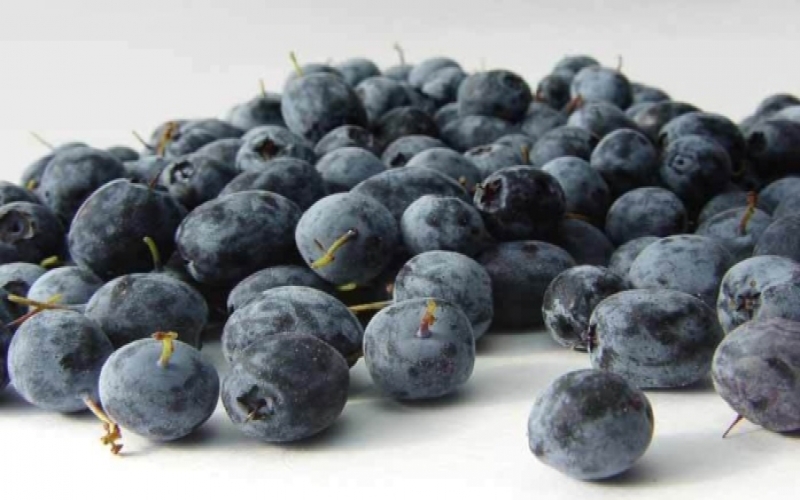Leafy Greens, Berries & Orange Juice Checks Memory Loss in Males!

Consumption of green leafy veggies, red veggies, dark orange, and berry fruits, together with intake of orange juice may be well-related to a lower risk of memory loss with time in males, based upon a study available in the November 21, 2018, online issue of Neurology, The Medical Journal of the American Academy of Neurology.
“One of the major significant factors involved in this study is that we were capable of researching and tracking such a huge group of males over a 20-year time duration, permitting for very effective results,” as told by the study researchers. “The research studies offer an additional data dietary choices may be vital for maintaining your brain health.”
The research study looked at 27,842 males with an average age of 51 years who were all health specialists. Participants were told to fill out some questionnaires regarding how many servings of fruits, veggies as well as other food products they had at the start of the study on a daily basis and then every 4 years for a total duration of 20 years. A fruit serving is measured as 1 cup of fruit or ½ cup of fruit juice. A serving of veggies is measured as 1 cup of raw veggies or 2 cups of green leafy veggies.
In addition, participants took subjective tests of their thinking as well as memory skills for a minimum of 4 years prior to the conclusion of the study, when they were having an average age of 73 years. The test is considered to identify the modifications that individuals might detect in how well they are memorizing things prior to those modifications would be identified by some objective cognitive tests. Certain modifications in the memory are accounted by the participants would be measured precursors to mild cognitive injury. The 6 questions may comprise “Do you experience greater difficulty than the normal identification of a short list of items, for example, a shopping list?” in addition, “Do you face greater difficulty than normal next to a group discussion or a plot in a TV program owing to your memory?”
A total of 55% of the participants had effective memory as well as good thinking skills, 38% had moderate skills, as well as 7% had poor memory and thinking skills.
The participants were categorized into 5 groups depending upon their intake of fruit and veggies. For veggies, the highest group had an approximate of 6 servings per day, in comparison to about 2 servings for the lowest group. In case of fruits, the top group had an approximate of 3 servings in a day, in comparison to half a serving for the bottom group.
It was seen that the males who took a large amount of veggies were 34% less prone to develop poor thinking skills as compared to males who took the smallest amount of veggies. A total of 6.6% of males in the top group developed poor cognitive function, in comparison to 7.9% of males in the bottom group.
The males who consumed orange juice on a daily basis were 47% less liable to develop poor thinking skills as compared to males who consumed less than 1 serving per month. This relationship was largely observed for a standard intake of orange juice among the oldest males. A total of 6.9% of males who consumed orange juice daily developed poor cognitive function, in comparison to 8.4% of males who consumed orange juice for a duration less than one time in a month. This variation in risk was adjusted for age but not adjusted for other aspects associated with some reported modifications in the memory.
Males who consumed a majority of fruits on a daily basis were less liable to develop poor thinking skills, but that relationship was weakened following researchers adjusted for other dietary aspects that could have an effect on the results, including the intake of fruit juice, veggies, legumes, dairy products, and refined grains.
Also, the researchers observed that individuals who consumed huge amounts of fruits and veggies 20 years previously were less liable to develop memory and thinking issues, whether or not they kept consuming huge amounts of fruits and veggies for an approximate 6 years prior to the memory test.
The study fails to demonstrate that the consumption of fruits and veggies as well as intake of orange juice considerably decreases memory loss; it only demonstrates an association between them.
But, there was a limitation in the study and that was the memory and thinking skills of the participants were not tested at the start of the study in order to distinguish how they got modified over the course of the study. Though, as all participants completed specialized training program, they can be believed to have started with comparatively high cognitive function in early adult life. Additionally, the study participants were all male health specialists including dentists, veterinarians, as well as optometrists. As a result, the final outcomes may not relate to females and other groups of males.
Reference Source: American Academy of Neurology. “Orange juice, leafy greens and berries may be tied to decreased memory loss in men.” ScienceDaily. ScienceDaily, 21 November 2018.



